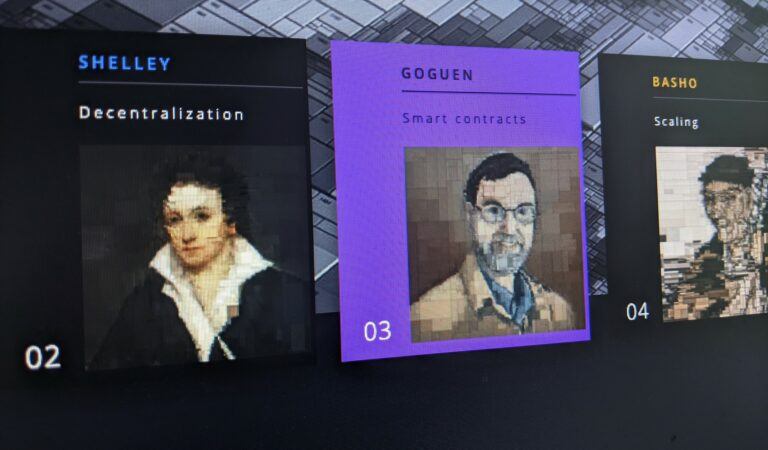Yesterday (September 22), blockchain technology company IOHK (aka “IOG”), which is responsible for the research and development of the Cardano protocol, talked about the upcoming store for decentralized applications (dApps) written for the Plutus Platform.
In an IOHK blog post published on September 22, Shruti Appia, Head of Product (Smart Contracts) at IOHK, started by saying that “addressing discovery and quality assurance issues is key to early ecosystem growth.”
She then said that this weekend — at Cardano Summit 2021 (September 25-26) — IOHK will “introduce a certification program to assess applications developed on top of Cardano” and preview a prototype of the upcoming Plutus dAppStore, which is “where developers will be able to upload their DApps running on Cardano and make them available to others.”
Appia says that the Plutus dAppStore aims to provide a solution for the following two problems:
- “There currently is no formal discovery process for a DApp. Almost all discovery happens through organic or word-of-mouth means, or through social media marketing“
- “For end users, there is no consolidated view of all DApps available in a given ecosystem“
Access to the Plutus dAppStore will be via a web browser. It is important to point out that this store will accept both certified and uncertified apps and it does not aim to “act as gatekeeper (or judge).”
She then went on to talk about the certification program, which aims to prevent “code-level security vulnerabilities.” It will do so by “deploying different levels of ‘defense’, as outlined below:
“There will be several tiers. At the simplest level, automated logic checks will enable us to detect certain types of malicious code. For example, these will be able to check if the contract does not contain a way for locked up funds to be recovered. In a well composed contract, locked funds need to be retrievable.
“Beyond that, manual smart contract auditing will help us verify any DApp’s integrity. Ultimately full formal verification will test the mathematical model to prove that a smart contract satisfies the formal specification of its behavior.“
Appia concluded her blog post by saying that in the long term IOHK “would like to see user-designed tools, the deployment of those tools to the store, and the evolution of the Plutus dAppStore to include new features such as upvoting, reviews, and even Atala PRISM integration etc., giving users the opportunity to feed back on the range of DApps in the store.”
Disclaimer
The views and opinions expressed by the author, or any people mentioned in this article, are for informational purposes only, and they do not constitute financial, investment, or other advice. Investing in or trading cryptoassets comes with a risk of financial loss.
Source: Read Full Article
